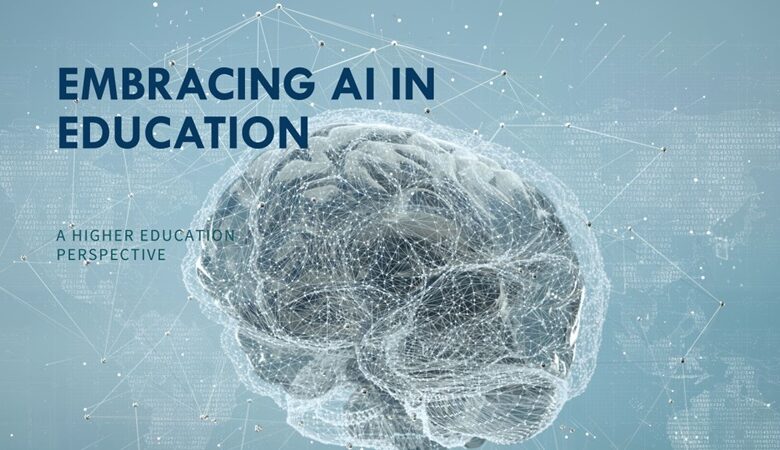Can we embrace generative AI in education?
News Mania Desk \ Piyal Chatterjee \ 21th january 2025

Generative AI, such as ChatGPT, is favored by students; however, the educators we collaborate with in countries like Germany, the Netherlands, and Finland perceive it as both a chance and a hazard. They are especially worried about how it will affect future learning and teaching strategies. We are researchers committed to exploring learning techniques that boost learner autonomy in the age of AI. Although we recognize the worries of educators, we are confident in AI’s potential if we change our perspective on how we perceive and evaluate learning.
A schooling system that emphasizes the learning journey rather than achievement metrics like grades offers students the chance to recognize their own agency. With reduced pressure to attain top grades, students can explore and try different learning methods to discover what suits them best while interacting with the study material. This allows students to improve their comprehension of their learning journey, and eventually broaden their understanding of the content. In the end, this would foster more resilient, adaptable students who are more equipped to tackle intricate, real-world challenges.
By customizing the digital learning setting to match students’ favored learning methods, digital learning tools and AI can enhance students’ learning outcomes. Nonetheless, allowing students to select their own learning approach might complicate their ability to manage their education, since not every student has the required self-regulation skills and self-awareness for this. Learners might feel inundated by the various choices available in open-ended, digital environments and opt for known learning techniques rather than adopting more effective ones. They might also erroneously interpret superficial indicators, like generating text with ease, as evidence of a successful learning approach, as demonstrated in our study. Students must cultivate the skill to assess if a particular learning approach is effective for them, and to create change if it does not .
The difficulties students encounter in managing their learning could be partly attributed to their inclination to concentrate on metrics such as test scores and class grades instead of assessing their understanding of the content. In our research on essay writing in Dutch high schools, students received input regarding their learning journey. Nonetheless, they primarily aimed to assess their performance through their essay grades, having difficulty reflecting on their learning journey apart from those evaluations. At certain private schools in Germany, pupils frequently surpassed the specified word count, possibly thinking that offering additional details would lead to improved grades. In Finland, when prompted to explain their learning experience, some students initially highlighted the grading of their essays. All these instances, noted during our recent data gathering, demonstrate a similar grade-focused mentality.
This emphasis on grades hinders students from assessing their learning progress effectively. As a result, they cannot recognize elements of their learning that they might modify to improve their learning approaches. Modifications must be implemented to ensure that students comprehend their learning processes, regulate themselves, and transform into learners who actively oversee their own education. This is significant as learning regulation is both dynamic and cyclical, influencing lifelong learning with every learning experience.
Many agree that the aim of education, especially in schools, is not only to help pupils achieve excellence, but also to promote effective learning that can be sustained and provide long-term benefits. Education should equip learners with the competencies they will need for the future. It is therefore important to consider the immediate effect of digital tools on educational performance, as well as their longer-term impact on student development.
Many agree that the aim of education, especially in schools, is not only to help pupils achieve excellence, but also to promote effective learning that can be sustained and provide long-term benefits. Education should equip learners with the competencies they will need for the future. It is therefore important to consider the immediate effect of digital tools on educational performance, as well as their longer-term impact on student development.






